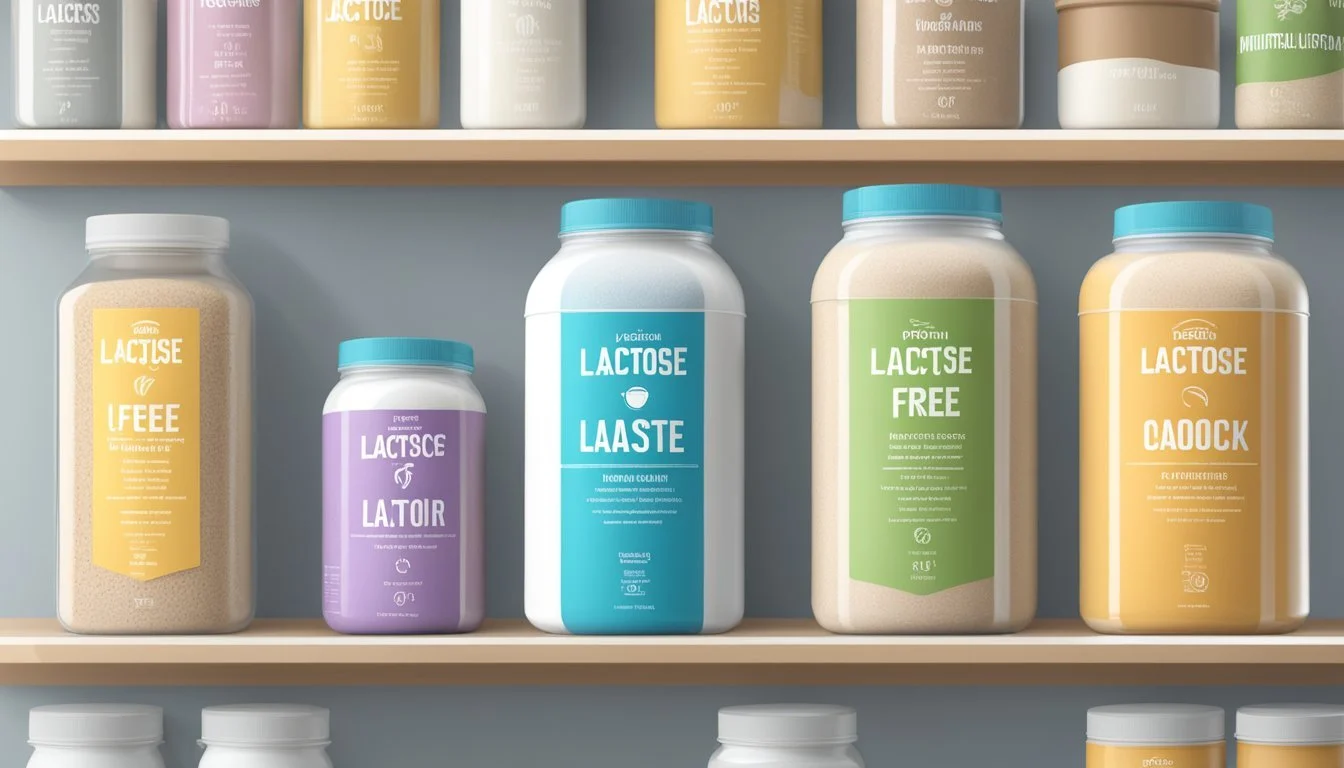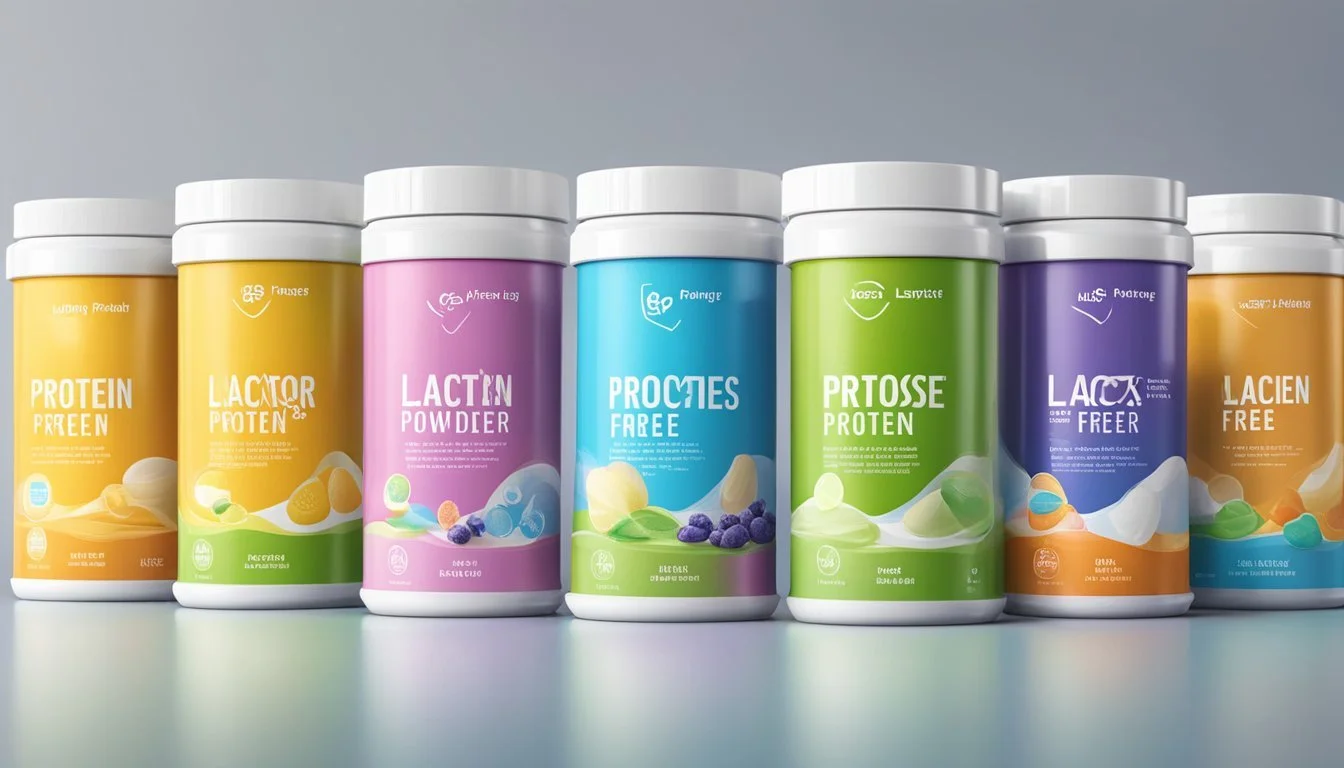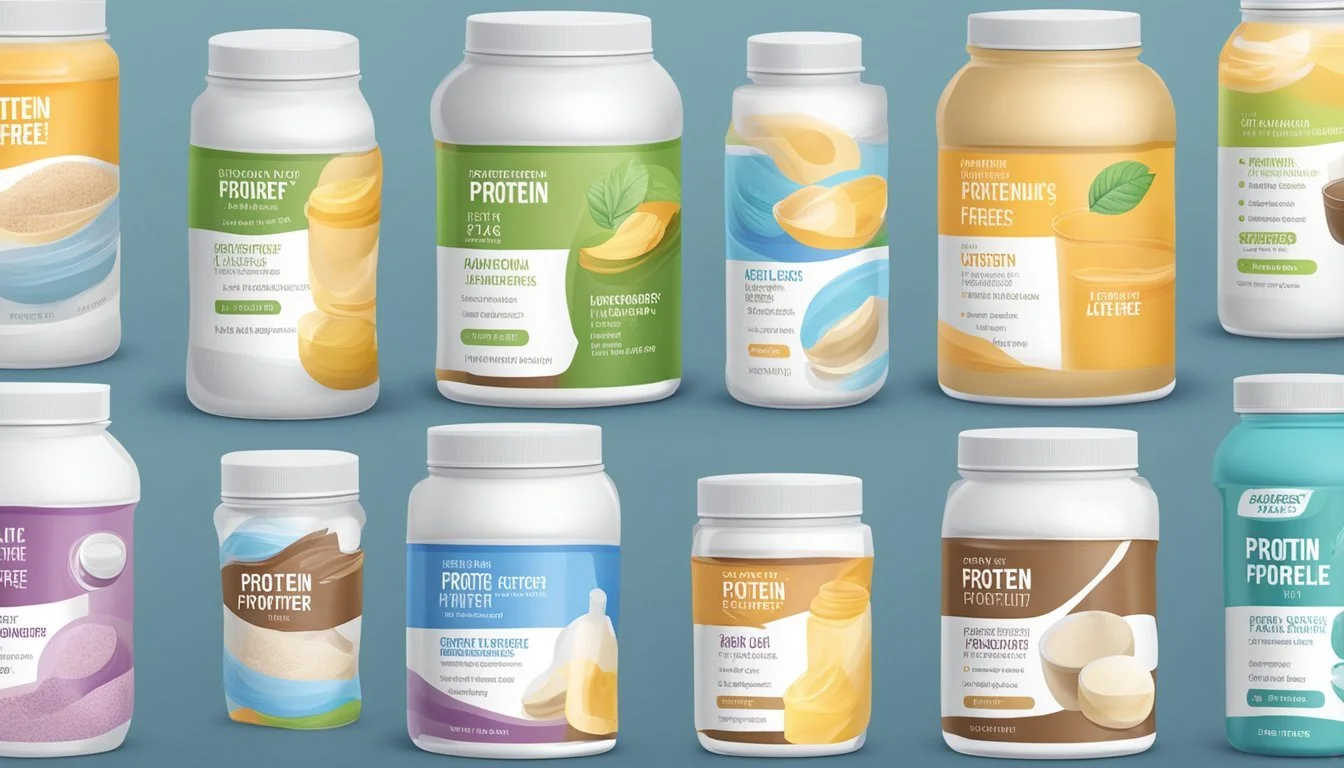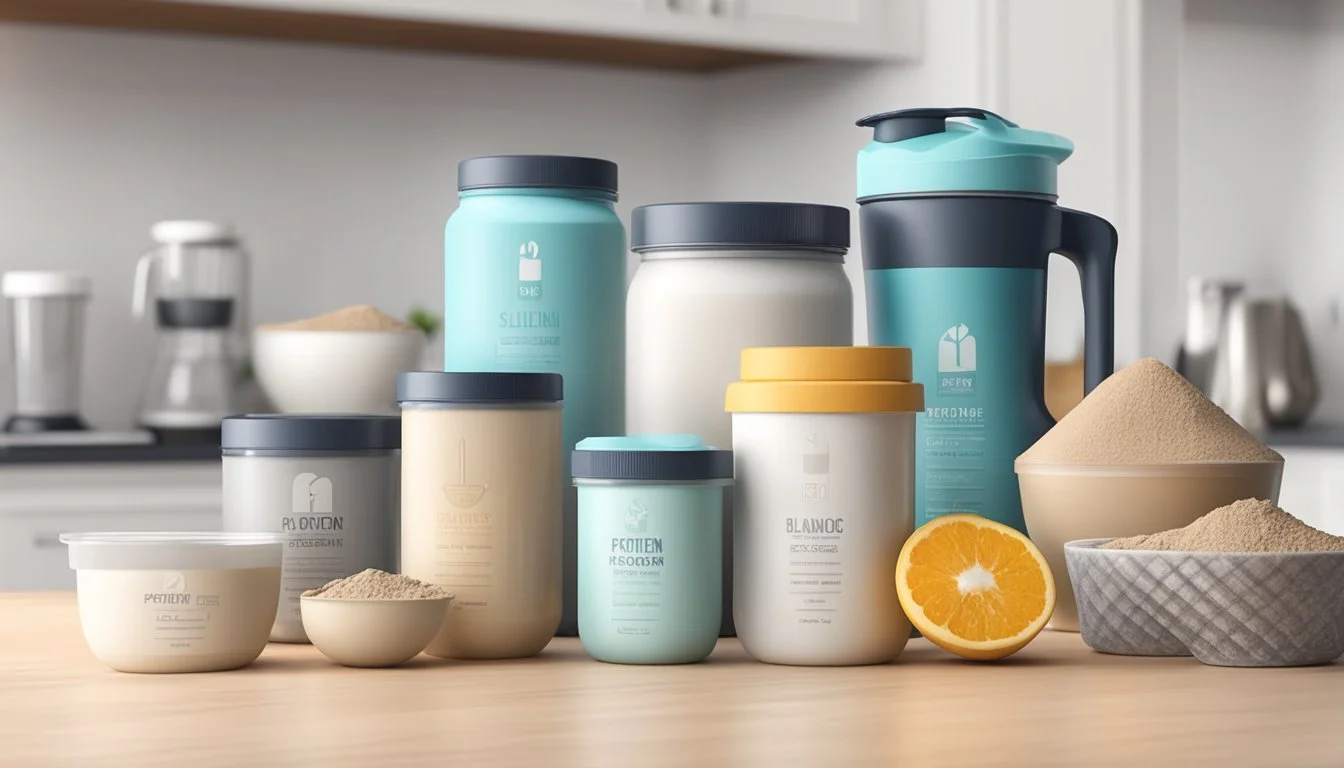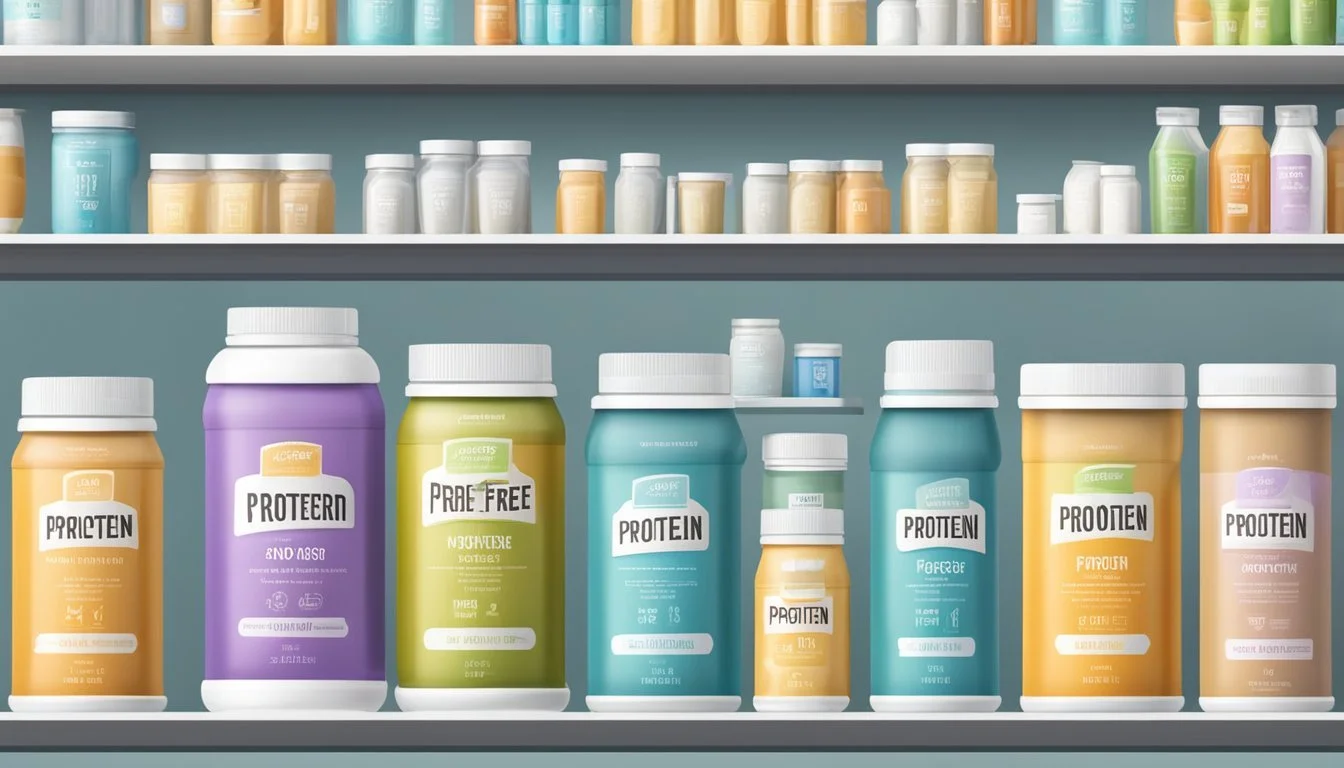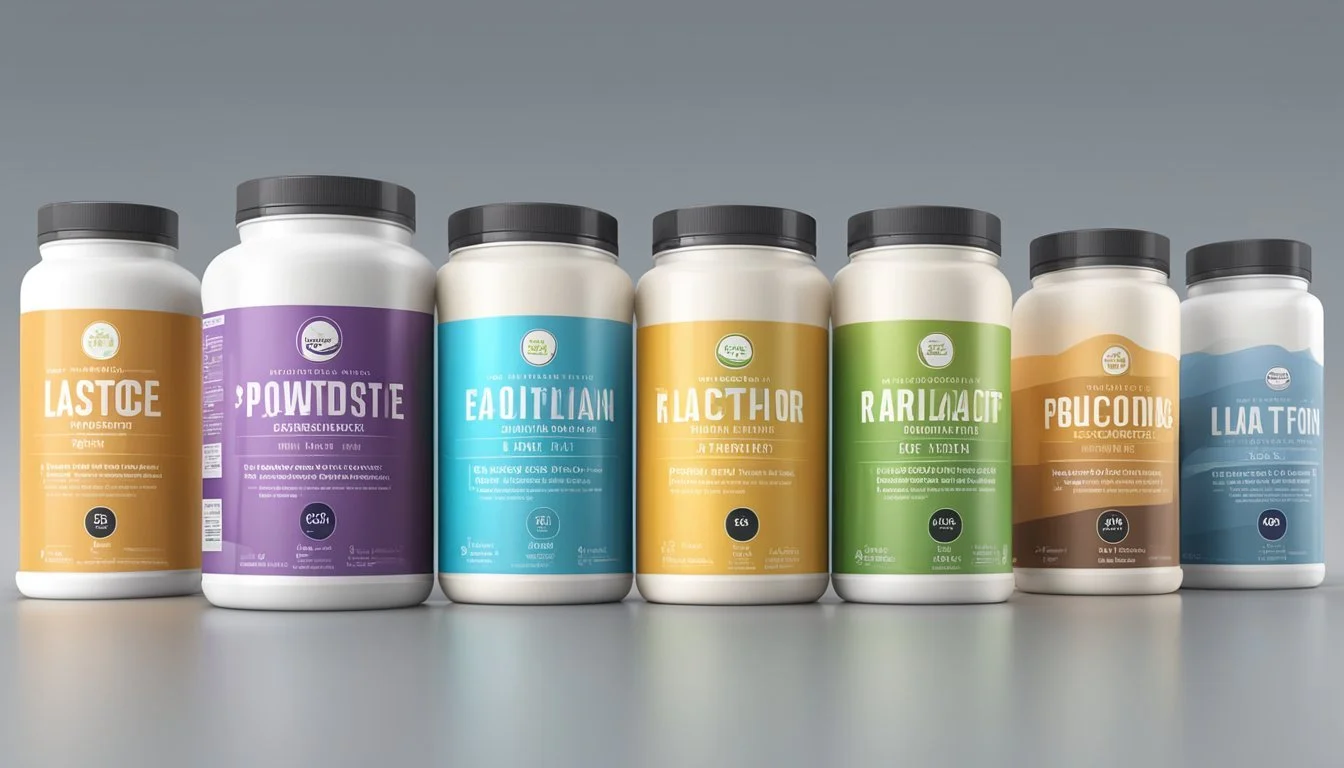What Are Some Lactose-Free Protein Powders?
Exploring Dairy-Free Options for Your Fitness Routine
For individuals with lactose intolerance or those choosing to abstain from dairy products, finding suitable supplements can be a challenge. Protein powders form an essential part of many people’s health and fitness regimens, offering a convenient way to increase protein intake. Lactose-free protein powders provide a solution, offering the benefits of protein supplements without the digestive discomfort associated with lactose.
These lactose-free offerings come in various forms to accommodate dietary preferences and nutritional needs. Plant-based proteins such as pea, soy, or rice protein powders are naturally lactose-free and are a popular choice for vegans and vegetarians. On the other hand, for those who prefer animal-derived proteins but need to avoid lactose, options like whey protein isolate—a form of whey that has been further processed to remove lactose—and egg white protein powder are available.
Incorporating lactose-free protein powders into one’s diet can support muscle repair, weight management, and overall health without triggering the adverse symptoms associated with lactose intake. These powders often come enriched with other nutrients and are available in various flavors to suit different palates, making them a versatile component in health-conscious diets.
Understanding Lactose Intolerance
Lactose intolerance affects a significant portion of the global population, creating a demand for alternative supplements such as lactose-free protein powders for health, muscle growth, and muscle recovery.
What Is Lactose Intolerance?
Lactose intolerance is a digestive issue where the body lacks the enzyme lactase, which is necessary to break down lactose, the sugar in dairy products. This deficiency leads to symptoms like bloating, gas, and abdominal pain after consuming dairy. It doesn't pose serious health risks, but it can be uncomfortable and inconvenient for individuals.
Benefits of Lactose-Free Supplements
Lactose-free protein powders offer numerous benefits for those with lactose intolerance or individuals seeking dairy alternatives. They can aid in muscle growth and recovery without the adverse effects associated with lactose consumption. Here are the benefits outlined:
Health: Using lactose-free supplements helps avoid discomfort, ensuring consistent nutrient intake without digestive issues.
Muscle Growth and Recovery: These supplements provide essential amino acids and proteins crucial for muscle repair and hypertrophy, similar to dairy-based proteins.
Dietary Flexibility: They cater to those following specific dietary restrictions, such as vegans or people with dairy allergies, expanding their options for protein sources.
Types of Lactose-Free Protein Powders
For individuals with lactose intolerance or those who prefer to avoid dairy, lactose-free protein powders offer a nutritious alternative to traditional protein supplements. These powders provide the necessary protein content without the lactose, utilizing various sources to cater to different dietary preferences and health goals.
Plant-Based Protein Powders
Pea Protein: An excellent source for those following a vegan diet, pea protein is derived from yellow split peas and is notable for its high protein content and favorable amino acid profile.
Rice Protein: Often combined with pea protein to ensure a complete amino acid profile, rice protein is extracted from brown rice and is appreciated for its digestibility.
Hemp Protein: Sourced from hemp seeds, this protein contains essential fatty acids along with a balanced ratio of protein, making it a valuable plant-based option.
Soy Protein: A popular vegan protein powder, soy protein is complete in its amino acid makeup, often chosen by vegans and those with dairy allergies.
Animal-Based Dairy-Free Options
Egg White Protein: This protein powder is made from the whites of eggs and provides high-quality, lactose-free protein that is also soy-free, making it suitable for those with multiple dietary restrictions.
Beef Protein Isolate: Extracted from beef, this powder is a viable option for those who avoid dairy but want a protein source from animal products, offering a high protein yield and an excellent amino acid profile.
Bone Broth Protein: Derived from the broth of boiled animal bones, this protein includes collagen and other vital nutrients, suitable for people following paleo diets or looking for gut-friendly protein powder options.
Specialty Protein Blends
Whey Protein Isolate: While whey is derived from milk, the isolate form undergoes a filtration process that removes virtually all lactose, making it a potential option for those with lactose sensitivity.
Organic and Vegan Protein Powder Blends: Many brands like Optimum Nutrition, Vega, and KOS produce organic, vegan blends that often combine multiple plant proteins to achieve a complete amino acid profile.
Grass-Fed Whey Protein: An option that appeals to health-conscious consumers, this protein is sourced from grass-fed cows, believed to offer a purer form and a better nutrient profile compared to conventional whey.
Key Considerations for Choosing Protein Powders
When selecting a lactose-free protein powder, it's essential to evaluate the source and quality of protein, scrutinize the list of added ingredients, and consider the overall nutritional content and how it may impact health and muscle growth.
Protein Source and Quality
Protein powders can be derived from various sources, and lactose intolerance necessitates looking beyond traditional whey protein. Plant-based proteins such as pea or soy, egg white protein, and various vegan blends provide high-quality alternatives. These should contain a complete amino acid profile, especially rich in essential amino acids and branched chain amino acids (BCAAs), which are crucial for muscle repair and growth.
Added Ingredients and Fillers
Many protein powders contain additional ingredients beyond the pure protein source. It is vital to check for artificial sweeteners like sucralose or aspartame, which some consumers may wish to avoid. Natural sweeteners such as stevia or monk fruit extract are often preferable. Additionally, be wary of fillers and unnecessary additives that do not contribute to the nutritional value or may cause unwanted side effects.
Nutritional Content and Health Impact
The nutritional profile of a protein powder affects its overall health impact. Low levels of fat, calories, and carbohydrates are generally desired in a protein supplement, particularly by those looking to manage weight. Some powders offer added vitamins and minerals to enhance health benefits. The nutritional content should support the goal of promoting muscle growth and maintenance, and contribute positively to overall health.
Popular Lactose-Free Protein Powder Brands
When searching for lactose-free protein powders, consumers have a diverse array of choices ranging from plant-based to whey isolates, each catering to dietary preferences and nutritional standards. The following brands exemplify the variety and quality available in the market.
Vega and Plant-Based Varieties
Vega is a well-known brand that offers a range of plant-based protein powders, aligning with vegan dietary requirements. Its products are designed to be all-natural and often organic, steering clear of GMOs. Plant-based options are not only beneficial for those with lactose intolerance but also for individuals seeking an all-encompassing nutritional profile from plant sources.
Optimum Nutrition and Whey Alternatives
Optimum Nutrition provides whey protein isolate alternatives for those lactose intolerant individuals seeking the muscle-repairing benefits of whey without the lactose. Whey isolates are meticulously processed to remove lactose, making them a feasible option for lactose-sensitive individuals. They are particularly favored for their high protein content and lower carbohydrate and fat levels.
Transparent Labs and Purity Standards
Transparent Labs prioritizes purity in its protein powder offerings, guaranteeing GMO-free ingredients and comprehensive label transparency. The brand is celebrated for its best lactose-free protein powders, offering both whey protein isolate and vegan protein powders. With a focus on all-natural ingredients, Transparent Labs caters to consumers conscientious about additives and artificial substances in their nutrition products.
Flavor Profiles and Sweeteners
When selecting lactose-free protein powders, consumers should consider the flavor profiles, which are shaped by natural or artificial flavors, as well as the sweeteners employed to enhance taste without adding lactose.
Natural vs Artificial Flavors
Protein powders come in a variety of flavors, each designed to make the supplement more palatable. Natural flavors are derived from sources like vanilla, fruit, cinnamon, and cocoa. These are extracted from the original substance and are favored for their authenticity in taste. On the other hand, artificial flavors are synthesized to mimic natural flavors, potentially offering a more consistent taste profile across batches. However, some consumers may be sensitive to artificial flavors or prefer the taste of natural sources.
Sugar Alternatives in Protein Powders
Sweeteners in lactose-free protein powders serve to improve flavor without adding sugar or lactose. Common sugar substitutes include:
Stevia: A natural, zero-calorie sweetener derived from the leaves of the stevia plant. It is significantly sweeter than sugar and has a distinct aftertaste that some may notice.
Monk Fruit: Another natural sweetener that contains no calories and is many times sweeter than sugar. It's known for a more favorable taste profile without the bitterness associated with stevia.
Sucralose: A widely used artificial sweetener that is non-caloric. Sucralose is generally recognized for its ability not to impart any aftertaste, making it a popular choice in many flavored protein powders.
It's important for consumers to read labels carefully, as sweeteners play a key role in the overall taste experience of a protein powder. The choice between natural and artificial sweeteners often comes down to personal preference and dietary needs.
Practical Tips for Using Protein Powders
When incorporating lactose-free protein powders into one's diet, it's important to consider how they align with dietary restrictions and contribute to health goals. Protein supplements should be used strategically for muscle growth and post-workout recovery.
Integrating Protein Powder into Your Diet
One must be mindful of dietary restrictions and calories when adding protein powders. They should complement meals with a high protein content rather than replace them. To seamlessly integrate protein powder into one's diet, consider the following:
Consistency: Mix protein powder with water, almond milk, or other lactose-free alternatives to suit your dietary needs.
Meal Planning: Add protein powder to smoothies, oatmeal, or homemade protein bars for convenience and variety.
Balance: Ensure other nutrients, such as vitamins and healthy fats, are part of your diet to maintain overall health.
Adjusting Servings for Muscle Gain and Recovery
Adjusting the servings of protein powder is crucial for muscle growth and post-workout recovery. To optimize protein consumption for these goals, keep in mind:
Muscle Gain: Those aiming for muscle hypertrophy might require larger servings of protein, particularly after resistance training sessions, to facilitate muscle repair and growth.
Recovery: After a workout, a modest serving of protein powder can aid in recovery and muscle repair, helping to reduce post-exercise soreness.
Cost Considerations and Value
When choosing a lactose-free protein powder, consumers should assess the price in relation to the serving size offered and the brand value. This ensures that one receives the best possible blend of cost-efficiency and quality.
Comparing Prices and Serving Sizes
Lactose-free protein powders come with varying pricing structures. Price per serving is a critical metric, as some brands may appear more expensive on a per-container basis but can be more economical when considering the per serving cost. For example:
Brand A: $30 for a tub of 20 servings can mean $1.50 per serving.
Brand B: $50 for a tub of 40 servings results in $1.25 per serving.
In choosing between different brands, it is also essential to consider the protein content per serving, as a higher protein content can provide more value, even at a slightly higher cost.
Bulk Purchasing and Brand Value
Purchasing protein powders in bulk often reduces the overall cost. Brands like Bulk Supplements offer their products in larger quantities, which can lead to significant savings over time. It is important, however, to balance the cost-effectiveness of bulk purchases with the potential for waste if the product is not used before its expiration date.
Brand value can be a good indicator of product quality and customer satisfaction. Some brands may offer additional benefits such as improved ingredients for better hair and skin health, which could justify a higher price tag. Reviews and ratings on platforms like Amazon can inform about user satisfaction and product effectiveness, adding another layer to value consideration beyond just the price.
Dietary Supplements and Regulatory Information
When selecting lactose-free protein powders, understanding the regulatory environment and labeling standards is crucial. This ensures consumers can make informed decisions consistent with their dietary needs and preferences.
Understanding Food Labels and Certifications
Dietary Supplements: The Food and Drug Administration (FDA) regulates dietary supplements under a different set of regulations than those covering conventional foods and drug products. Manufacturers are responsible for ensuring that their products are safe and that any claims made about them are substantiated by adequate evidence to show they are not false or misleading.
Ingredients: Look for transparency in ingredient listings. Lactose-free protein powders should explicitly state the absence of lactose among their ingredients.
Certifications:
Organic: Certified organic supplements are assured to have been produced without the use of synthetic pesticides, GMOs, and artificial fertilizers.
GMO-Free: Products labeled as GMO-free are made without genetically modified organisms.
Gluten-Free: This label indicates the absence of gluten, a significant consideration for those with celiac disease or gluten sensitivity.
Fillers and Preservatives: Consumers should be aware of fillers and preservatives used in protein powders, which could affect allergenicity and health.
Navigating Allergen-Free and Dietary Restrictions
Dietary Restrictions: Individuals with dietary restrictions must examine protein powder labels to ensure the absence of ingredients that could trigger allergic reactions or intolerances, such as dairy, soy, or gluten.
Lactose-Free Protein Powders: These products must exclude lactose to be considered truly lactose-free, catering to individuals with lactose intolerance.
Vegan-Friendly: Plant-based proteins such as pea and rice are common in vegan-friendly supplements.
Gluten-Free: Ensuring protein powders do not contain gluten is essential for those with gluten-related disorders.
Soy-Free: Soy is eliminated in soy-free protein powders, critical for those with soy allergies or sensitivities.
By carefully examining labels and certifications, consumers can find lactose-free protein powders that comply with their dietary restrictions and preferences while also providing the desired nutritional benefits.


